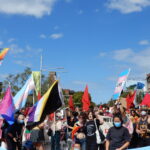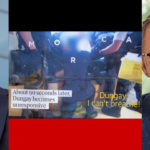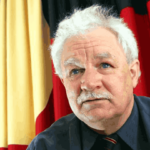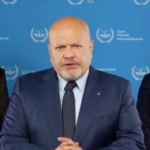“Parliamentarians Have Taken Us For Granted”: An Interview with Muslim Votes Matter’s Dr Naser Alziyadat
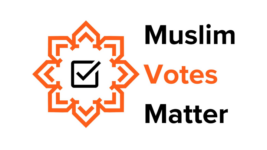
The Albanese government announced on 9 July 2024 it was establishing a special envoy on antisemitism and an Islamophobia special envoy to deal with such prejudice, which said to be on the rise in the community, as a result of the Israeli perpetrated genocide in Gaza.
Yet, on that day, PM Anthony Albanese appointed Jillian Segal as antisemitism envoy with much fanfare, and he explained that the Islamophobia envoy had not yet been decided upon. And only on Monday, three months later, was Aftab Malik appointed to this position, and it was a low-key affair.
The three months delay, and the lack of urgency given to the position that is supposed to curb prejudice towards Muslims in the community comes after the Albanese government has spent a year downplaying the wholesale massacre of the majority Muslim Palestinian population of Gaza by Israel.
Top Australian ministers continued to refer to Israel as exercising its right to self-defence in the Gaza Strip, whilst it has been perpetrating a high-tech large-scale genocide upon the Palestinians of the region, long after the International Court of Justice deemed it a plausible genocide in January.
And horror was building amongst much of the Australian constituency, due to the fact that not only was the Israeli government perpetrating a mass settler colonial massacre, but our government was complicity dismissing this.
So, when then Labor Senator Fatima Payman spoke out of turn to name Gaza a genocide publicly in May, it resonated widely.
And it was not long after time, that the broader public became aware of a new campaign, Muslim Votes Matter, which comprises of members of the Muslim community coming together to organise politically in order to ensure that their concerns are on the national agenda at the next election.
Sydney Criminal Lawyers spoke to Muslim Votes Matter spokesperson Dr Naser Alziyadat about how Muslim Votes Matter will be operating in the leadup to next year’s election, why there is a need for a group like MVM, and how the group plans to put Muslim voices on the agenda.
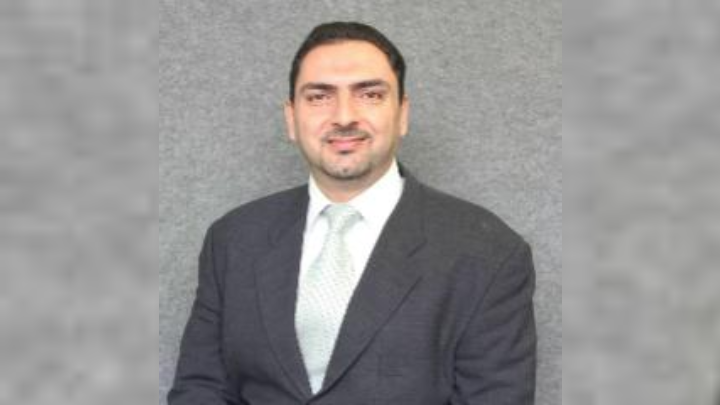
Muslim Votes Matter came to the attention of the wider public around the time that now Independent Senator Fatima Payman resigned from the Labor Party in early July, after she’d crossed the floor to vote on a Greens motion to recognise the state of Palestine.
Muslim Votes Matter went on to launch nationally at Broadmeadows Town Hall in Melbourne on 1 September.
But there continues to be misunderstanding as to whether Muslim Votes Matter is a political party or an advocacy group.
So, Dr Alziyadat, can you explain how Muslim Votes Matter hopes to ensure the concerns of its members are represented in the next federal parliament? And what types of candidates will MVM be voting for?
Muslim Votes Matter is a grassroots movement. We are working on a system where politicians – whether they are running candidates or incumbents – are going to be ranked according to their stances with regard to civil matters that are of interest not only to the Muslim community but to the Australian people at large.
As the Muslim community, we have some concerns related to us. For example, the war in Gaza, the genocide, the war crimes and now, the war on Lebanon. Those are concerns specific to the Muslim community in addition to Islamophobia.
But the Muslim community is a part of the larger Australian community, and we share a lot of concerns that they have with regard to the performance of the government and politicians that we’ve voted for.
The ranking system that we’re working on is going to give each candidate and incumbent, each political person, a score to which that person is going to be ranked amongst others running for each electorate.
It is going to be an electorate-by-electorate ranking score system. So, people are going to be aware of how each of those candidates was or will be dealing with their concerns.
I see. So, you won’t be running candidates but voting as a bloc?
Yes. We won’t be running our own candidates. Muslim Votes Matter is not a political party. We are calling on people to vote as a bloc.
The Muslim Votes Matter website outlines that strategic planning on the part of the group will see it coordinating its vote so that parliamentarians that do represent the concerns of the Muslim community receive their support.
The ongoing Israeli genocide in Gaza and the Australian government’s response to it appear to have marked a turning point for the community in terms of moving towards a more coordinated political voice.
Can you talk about how Australian parliamentarians have been failing Muslim communities in terms of addressing their needs?
The war on Gaza has made us understand that we have been taken for granted for a long time as the Muslim community.
There have been no kinds of consultations that we are entitled to as the Muslim community, because, as Australians through the Constitution, we are entitled to freedom of political communication.
We have not used that. That is why the parliamentarians have taken us for granted for a long time. This has been a secure vote.
In this regard the war on Gaza and the genocide has woken us up to understand that those people will never consider us, and they have failed us.
They have not responded to our emails. We have sent thousands of emails to our representatives. We have made phone calls, visited their offices, all for no response.
They just ignored us, and that was a wakeup call for us to mobilise. They failed us. And if they fail us in this specific thing, they’re going to fail us in all other things.
That is on the one hand. On the other hand, as I said, the Muslim community is part of the larger Australian community, and, according to recent studies, the larger Australian community is concerned about the cost of living and the housing crisis.
In fact, they are concerned about how the government operates and runs the country politically, without achieving results.
To make this factual, a recent study conducted by the Australian National University surveyed a sample representing the Australian population and more than 90 percent of people believed that there should be an independent anticorruption body.
So, what does this tell you? It tells you there is a problem. People believe there is a problem. The larger Australian community believes there is a problem.
Seventy percent of those surveyed conveyed that they consider the government is there to serve its own interests. This is 70 percent of the survey representing the Australian population.
Fifty four percent of those surveyed believed that the government is there to serve the interests of a tiny minority of the Australian population.
What does this tell you? It tells you that this system has failed us for a long time: not only the Muslim community, but the Australian community, the population at large.
That is how we feel that those politicians have failed us.
When talk of Muslim political parties became part of the national conversation, prime minister Anthony Albanese got a little conspiratorial about the idea arising at the same time as Senator Payman’s resignation.
Then when questioned about the prospect of Muslims in western Sydney mobilising a grassroots political campaign, he responded that he doesn’t want the country to “go down the road of faith-based political parties, because what that will do is undermine social cohesion”.
How was the reaction of the PM taken by the Muslim community? What does MVM think about its presence on the political scene being considered a threat to social cohesion?
Well, in the 2022 election, Albanese campaigned at the Lakemba Mosque to get the voice of the Muslim community.
He is contradicting himself. He campaigned in Lakemba Mosque to get the voice of the Muslim people. Why would he intervene in faith in that regard when he was campaigning?
That is on the one hand. One the second hand, we, as Muslim Votes Matter, do not plan to run candidates, and we do not have any interest in having a political party.
And another thing is, there are Christian parties in Europe, why is it alright for some people to do this, but when it comes to the Muslim community it becomes this faith-based thing?
I assure you that the Muslim community are not planning to have an Islamic political party. We are an advocacy group, and this is how we think about it.
We just want to educate our community to practice their entitlements under the Constitution and Australian law in terms of political communication and bargaining.
So, it’s been a month since the official launch of the Muslim Votes Matter campaign, what is your organisation focused on at present?
As I told you, we have that ranking system, and we’re going to use this to educate our community. And this is not only our community, as I can tell you, we have non-Muslims joining with Muslim Votes Matter.
So, we will educate the people in terms of how to vote for the people who are going to serve their interests. So, there will be an educative phase, which has already started.
We are already educating people in terms of how to vote.
And lastly, Dr Alziyadat, Muslim Votes Matter considers that there are 20 seats nationwide where the Muslim community could potentially have the deciding vote.
So, what sort of influence does MVM consider its likely to have on the next federal election?
Well, we’ve identified those seats, where the Muslim community has about 10 percent or more of the vote.
However, it is a matter of showing those politicians that we have the power to decide their fate – whether they’re going to be a parliamentarian or not.
They have to respond to us. This is bargaining power. It is not necessarily that we are going to target those 20 seats and that we are going to take down all those incumbents. It will depend. These are elections.
So, we hope that we are going to have a hung parliament in the coming next election.




